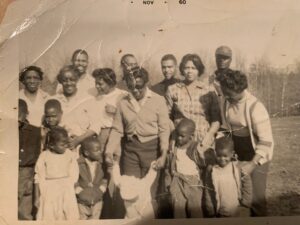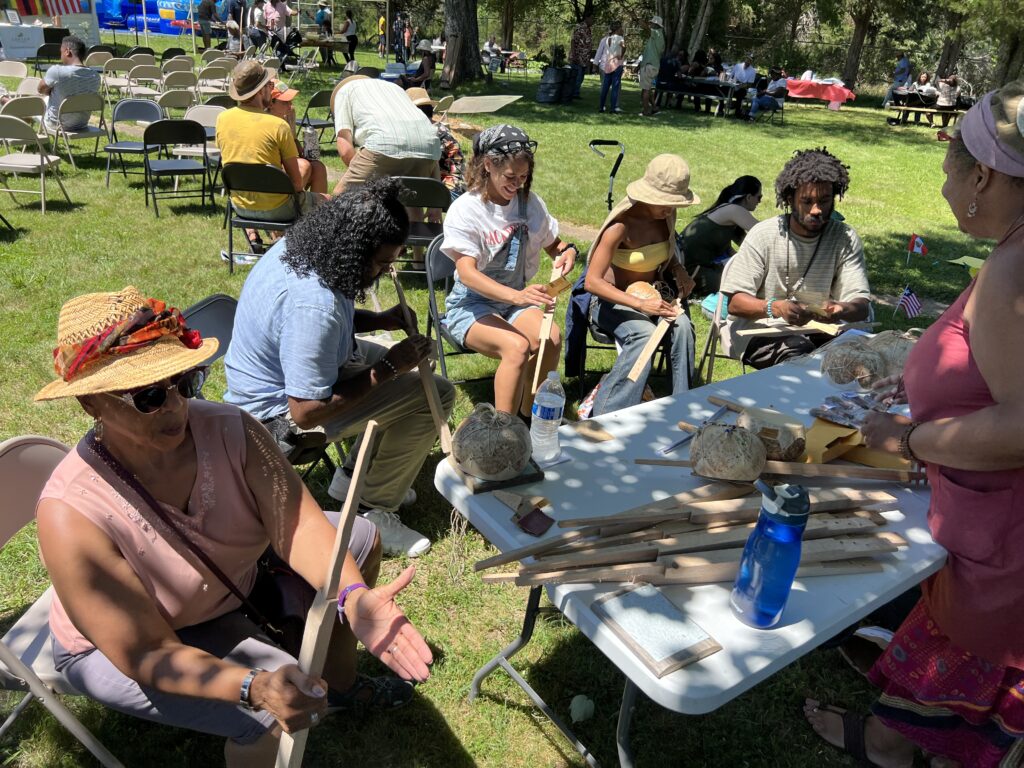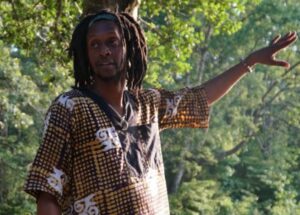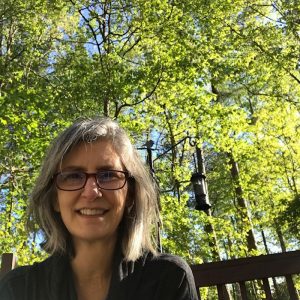
Michael Carter, Jr., is sowing seeds. A fifth-generation farmer in Orange County, Carter grows indigenous African vegetables like amaranth, Nigerian spinach and gboma. But he’s also laying the groundwork for future farmers.
“My father taught agriculture and I am a lifetime farmer,” he says. “It’s always been my desire to plant seeds in others.”

After five years in Ghana as a consultant to farmers transitioning from conventional to organic growing methods, Carter returned to the family farm and started Africulture, a program that melds his love of African culture and agriculture together to educate others.
“You don’t realize how much people don’t know,” he says. “The most common thing I hear when I’m talking to people is ‘I didn’t know that’ or ‘I learned a lot.’ It’s refreshing because it means that they were listening and it resonates.”
Now Carter hosts Africulture events on the family farm. Most recently, he celebrated Juneteenth there with over a hundred people in an event that was designed to attract families. A Virginia Outdoors Foundation Get Outdoors Fund grant helped fund that and future events this summer. “The VOF support made it possible for us to come up with some concepts that really helped us engage the audience we were trying to reach, which was younger people as well as their parents.”

Activities at the Juneteenth celebration included a presentation and African libation ceremony with representatives of the United States Colored Troops, a painting workshop with paints that participants made themselves from vegetable dyes, another workshop where people learned to make banjos out of African gourds, and educational sessions learning about heritage vegetables. And, of course, plenty of opportunities to eat good food.
Everything at the event, Carter says, was designed to “engage your senses, your connection with the land and the gifts the land gives you. With the right creativity and the right processes, you can create something, too.”
To further this engagement Carter utilizes all resources, including technological ones. The Cornell Lab of Ornithology is one of his favorite apps to get kids to slow down and listen. “You want to give them the opportunity to appreciate the frequency of joy and peace. It’s at the heart of what we do.”
In the end, Carter aims to inspire young people to reconnect to the land and foster a new generation of Black farmers, whose numbers are in decline at the rate of 20 to 25 percent every agricultural census. “That’s every five years,” Carter notes. “We need to help folks understand that this is a crisis. And we want to bring attention to that crisis in a meaningful way.”

Carter leads tours of the farm for one to two groups of students from Charlottesville every week, aiming to get them to understand where their food comes from. “Even just yesterday,” he says, “there was a group of young African American students here and the conversation we had was really in-depth, really intriguing. They weren’t afraid to ask the hard questions. I tried to answer.
“I can’t say I know what will happen in the future,” he says, “but I know that I planted some seeds.”

Wonderful
The last name Carter intrigues me to dig deeper into your family tree. I am a Cheatham but my grandmother was a Carter (she married a Harris). Her family grew up in Millwood, Va. Charles “Nat” Cater 1868 and Nathaniel Carter Jr. 1830 – 1900 were basically some family lineage. The Carter Clan of Millwood, Clarke County, Va (from ca.1820). Reach out to me if this is a burning in your ear.
Comments are closed.